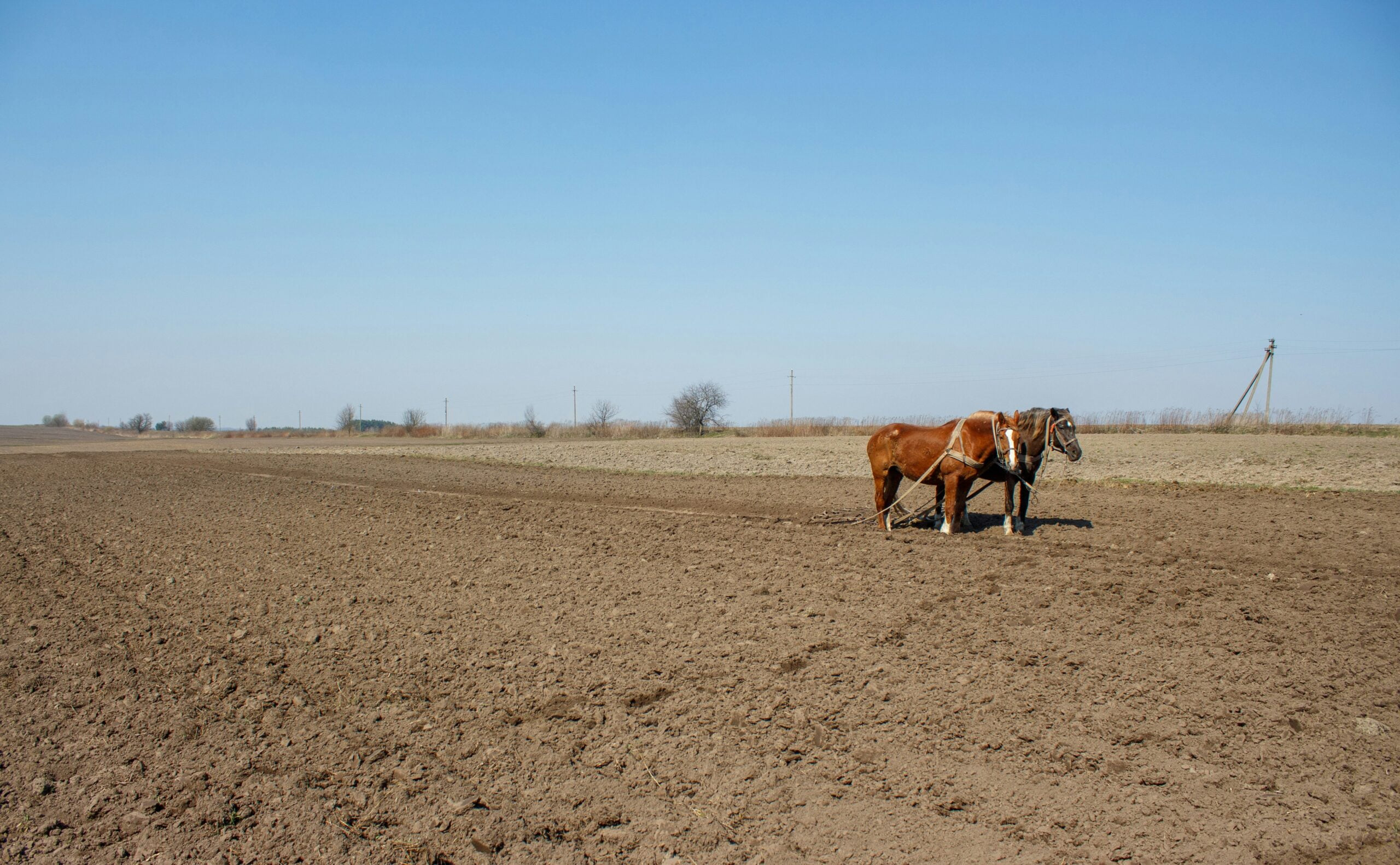Introduction to Farm Jobs in Canada
The agricultural sector in Canada is undergoing a significant transformation, driven by advancements in technology, changing consumer preferences, and an increasing global demand for farm produce. This shift has brought with it a rising demand for diverse farm jobs across the country. Agriculture has long been a cornerstone of the Canadian economy, contributing billions of dollars annually and providing essential food resources both domestically and internationally.
Canada Job Opportunities for Foreigners
Here are the job vacancies: https://bit.ly/canadafarmsjobs
The demand for skilled and unskilled labor in this sector is higher than ever before, creating a wealth of job opportunities for individuals interested in agricultural careers. Farm jobs in Canada encompass a broad range of roles, from traditional manual labor positions to highly specialized agricultural roles requiring advanced knowledge and training. Whether one is interested in working directly on the fields, managing farm operations, or engaging in research and development, the farming industry presents numerous pathways for professional growth and fulfillment.
Manual labor jobs, which include planting, harvesting, tending to livestock, and operating machinery, remain the backbone of agricultural operations. These positions are crucial for the day-to-day activities that keep farms productive and efficient. Meanwhile, specialized roles such as agronomists, animal nutritionists, and agricultural engineers are also in high demand, given the growing emphasis on sustainable practices and innovative farming techniques.
From coast to coast, Canada’s diverse agricultural landscape offers a variety of settings and specializations. The prairie provinces, known for their expansive grain and oilseed farms, differ markedly from British Columbia’s lush fruit orchards and wineries. Quebec and Ontario also present unique agricultural opportunities, making Canada a mosaic of farming environments and job prospects.
In light of these trends, pursuing a farm job in Canada not only aligns with the nation’s economic priorities but also offers individuals a chance to be part of a vibrant and evolving industry. Whether you are seeking stability, the opportunity for hands-on work, or a chance to utilize advanced agricultural technologies, the Canadian farm sector offers something for everyone. Continue reading to explore the various job opportunities available and find your dream agricultural career today.
Types of Farm Jobs Available
The farming industry in Canada offers a diverse array of job opportunities suited to various skills and interests. Each type of role comes with unique responsibilities and qualifications, providing countless avenues for those aspiring to an agricultural career. Below is an overview of different farm job categories: crop production, livestock management, machinery operation, and agribusiness.
Crop Production
Crop production is a cornerstone of the agricultural sector. Jobs in this field typically involve planting, cultivating, and harvesting various types of crops such as grains, fruits, and vegetables. Responsibilities may include soil preparation, fertilization, pest control, and irrigation management. Individuals interested in these positions usually need a solid understanding of plant biology and a keen sense of timing and environmental factors. Possessing a degree in agricultural science or equivalent experience can be advantageous.
Livestock Management
Livestock management encompasses roles that focus on the care and breeding of animals like cattle, poultry, and sheep. Tasks in this sector often involve feeding, health monitoring, and maintaining the cleanliness of animal habitats. These jobs demand knowledge of animal behavior, veterinary science, and nutritional needs. Specialized certifications or degrees in animal science can enhance employability and effectiveness in these roles.
Machinery Operation
Machinery operation is essential for modern farming. Operators handle a variety of equipment, including tractors, harvesters, and irrigation systems, to optimize farming efficiency. Responsibilities typically include routine maintenance, troubleshooting mechanical issues, and ensuring that machinery is used safely and effectively. Experience with heavy machinery, mechanical aptitude, and sometimes certification or technical training are crucial for success in these roles.
Canada Job Opportunities for Foreigners
Here are the job vacancies: https://bit.ly/canadafarmsjobs
Agribusiness
Agribusiness encompasses the commercial aspects of agriculture, offering roles in areas like marketing, sales, supply chain management, and financial planning. Professionals in agribusiness need to understand market trends, customer behavior, and regulatory requirements. Skills in business administration, economics, and project management are often necessary. A degree in agribusiness or related fields can pave the way for a career in this dynamic and critical sector of farming.
Qualifications and Skills Needed for Farm Jobs
Securing a position in the agricultural sector of Canada demands a blend of specific qualifications, training, and essential skills that can vary significantly depending on the type of farm job. Certain certifications and educational background can enhance a candidate’s prospects and make their application more competitive.
Firstly, many farm jobs require a basic level of formal education. While some entry-level positions may not stipulate high educational requirements, roles involving specialized machinery or agronomic practices might necessitate a diploma or degree in agricultural sciences or a related field. Institutions across Canada offer diverse agricultural programs that can provide an excellent theoretical framework and practical insights into modern farming techniques.
Practical experience is another crucial factor for farm job applicants. Whether obtained through internships, volunteer work, or previous employment, hands-on experience in a farming environment not only bolsters an applicant’s resume but also provides valuable on-the-job knowledge. This experience can range from livestock management and crop cultivation to the operation of specialized farm equipment.
Physical fitness is a non-negotiable trait for most farm jobs. The nature of agricultural work is often physically demanding, requiring extended periods of manual labor in various weather conditions. Candidates must demonstrate endurance, strength, and the ability to handle physically strenuous tasks with efficiency and safety considerations in mind.
Additionally, specific skills can significantly impact an applicant’s suitability for farm jobs. For instance, proficiency in operating machinery, such as tractors and harvesters, is vital for mechanized farm roles. Skills in veterinary care are advantageous for livestock management positions, while knowledge of pesticide application and soil management is crucial for crop-related jobs.
Certifications, such as pesticide applicator licenses or heavy machinery operation permits, further enhance an applicant’s profile. These credentials attest to a candidate’s competency in specialized areas and compliance with regulatory standards, thereby making them more attractive to potential employers.
In summary, a combination of relevant education, practical experience, physical fitness, and specialized skills forms the cornerstone of qualifications sought in the Canadian agricultural job market. By aligning these aspects, aspiring farm workers can significantly bolster their employment prospects and thrive in their chosen agricultural careers.
How to Search for Farm Jobs in Canada
Searching for farm jobs in Canada can be an adventurous and rewarding journey, provided you know where to look and how to make the most of available resources. Various methods can effectively guide you in finding the perfect agricultural career.
Online job portals are a primary resource. Websites such as Indeed, Workopolis, and specialized agricultural job boards like AgriRecruiting and WorkInAgriculture are excellent starting points. These platforms allow you to filter job listings based on your preferences, including location, type of farm work, and salary expectations. Uploading a well-crafted resume and setting up job alerts can keep you updated with the latest opportunities in the sector.
Networking remains an invaluable method. Connecting with agricultural professionals through platforms like LinkedIn can open doors to job opportunities that may not be advertised publicly. Engaging with industry groups and participating in online forums focused on agriculture can also help expand your network and increase your visibility within the industry.
Job fairs dedicated to agriculture are frequently organized across Canada. Attending these events offers a unique opportunity to meet farm owners and hiring managers directly. These fairs often feature on-the-spot interviews and provide valuable insights into various agricultural roles and expectations. Checking the event schedules of local agricultural universities and organizations like the Canadian Federation of Agriculture can provide information on upcoming job fairs.
Regarding local versus national job searches, each approach has specific advantages. Local searches can provide quicker results and reduce relocation hassles. This can be particularly beneficial for those seeking immediate employment or balancing personal responsibilities. On the other hand, a national search can unveil a broader spectrum of opportunities, potentially yielding better career prospects and higher salary packages.
By strategically utilizing online resources, networking, attending job fairs, and considering both local and national searches, you can enhance your chances of finding an exciting farm job in Canada that aligns with your career aspirations.
The Hiring Process: What to Expect
Securing a farm job in Canada involves a structured hiring process designed to identify the best-fit candidates for various agricultural roles. Understanding this process can help applicants navigate the steps more effectively and increase their chances of success. From application submission to interviews and onboarding, each stage has its expectations and requirements.
First, the application submission usually involves sending a resume and cover letter through online job portals, recruitment agencies, or directly to the employers. It is essential to tailor these documents to highlight relevant experience in agriculture, specific skills like operating farm machinery, and any certifications, such as pesticide application licenses. Highlighting adaptability and physical stamina can also be beneficial, as these traits are highly valued in farm work.
After the initial application review, selected candidates are typically invited for an interview. Interviews for farm jobs may range from traditional question-and-answer sessions to more practical evaluations. Common interview questions may include inquiries about your previous farm experience, familiarity with specific crops or livestock, and your ability to handle physically demanding tasks. Employers may also be interested in your problem-solving skills and ability to work in a team. For example, they might ask how you would manage a sudden pest outbreak or coordinate with colleagues during the harvest season.
In some cases, employers may conduct a trial period or require candidates to undergo training. A trial period allows employers to assess an applicant’s practical skills and fit within the team. This phase can last from a few days to several weeks, depending on the complexity of the job. Training programs, when provided, usually cover essential safety protocols, operating procedures for various equipment, and specific techniques related to crop or livestock management.
Overall, the hiring process for farm jobs in Canada is comprehensive and aims to ensure that the right candidates are selected for the roles. By preparing adequately and understanding what to expect, applicants can navigate the process with greater confidence and demonstrate their commitment to pursuing a rewarding career in agriculture.
Work-Life Balance and Benefits of Working on a Farm
Working on a farm in Canada offers a unique lifestyle characterized by a blend of rigorous work and rewarding personal experiences. For many, the balance between work and personal life is an appealing aspect of farm employment. The nature of farm work often necessitates a close proximity to the land and the tasks at hand, promoting a deep connection to nature and the environment. This connection can contribute significantly to overall job satisfaction and personal well-being.
One of the primary benefits of working on a farm is the potential for on-site housing. Many farms provide lodging to their workers, which can range from individual cottages to shared accommodations. This arrangement not only eliminates the need for a daily commute but also fosters a sense of community among farm workers. Additionally, some farms offer meals as part of the employment package, ensuring that workers have access to fresh, nutritious food. This perk can significantly reduce living expenses and enhance the overall quality of life.
Farm employment also comes with various other perks, such as opportunities for learning and personal development. Working on a farm can introduce individuals to sustainable agricultural practices, livestock management, and crop production techniques. Many farms encourage skill development through workshops and hands-on training, providing a dynamic and educational work environment.
However, it is essential to be aware of the challenges that come with farm work. The agricultural sector is known for long hours, particularly during planting and harvest seasons. The work is often physically demanding, requiring strength and stamina. Additionally, the seasonal nature of farm work can lead to periods of intense activity followed by slower periods. Flexibility and adaptability are crucial traits for those seeking a career in this field.
Despite these challenges, the benefits of farm work – including close community ties, connections to nature, and potential for personal growth – often outweigh the demands. For those passionate about agriculture, working on a farm in Canada can be a fulfilling and enriching career choice.
Success Stories: Profiles of Farm Workers
Canada’s agricultural sector has long been a beacon of opportunity for those seeking meaningful and fulfilling careers. The success stories of farm workers reflect the sector’s diversity and potential. Take, for instance, Maria Rodriguez, who transitioned from an urban office job to managing a thriving organic farm in British Columbia. Maria’s passion for sustainable agriculture and her strong work ethic earned her recognition and opened doors to various leadership roles within the farming community.
Another inspiring story is that of Ahmed Khan, an immigrant from Pakistan who arrived in Canada as a seasonal farm worker. Ahmed’s dedication and keen interest in horticulture led him to pursue further studies in agricultural sciences. Today, he owns a successful greenhouse business in Ontario, providing employment to dozens and contributing significantly to the local economy.
Lena Valdez, a young graduate from Toronto, found her dream job in animal husbandry in Alberta. Initially seeking a change from her environmental studies career, Lena discovered her love for working with livestock through an internship program. Her innovative approaches to animal welfare and farm management have set new standards and earned her accolades within the industry.
These profiles underscore the range of opportunities available in Canada’s farming industry, highlighting how diverse backgrounds can converge in the agricultural sphere. Whether one starts in a related field, immigrates with hope, or shifts from an entirely different career, the agricultural sector is rich with possibilities. Such stories serve as practical insights, illustrating the potential pathways and rewards that await prospective job seekers in Canada’s vibrant farming landscape.
Future Trends in the Canadian Farming Industry
The future of the Canadian farming industry is vibrant and full of potential, driven by a confluence of emerging trends and technological advancements. One significant trend is the shift towards sustainable farming practices. As concerns about climate change and environmental sustainability continue to mount, Canadian farmers are increasingly adopting eco-friendly methods. These practices not only help protect the environment but also boost the long-term viability of farming operations. Methods like crop rotation, organic farming, and regenerative agriculture are gaining traction, ensuring healthier soils, reduced carbon footprints, and better-quality produce.
Another promising trend in the Canadian farming sector is the rapid advancement in agricultural technology. Innovations such as precision agriculture, which employs GPS technology and data analytics, allow farmers to optimize field-level management with unprecedented accuracy. Drones, automated tractors, and smart irrigation systems are becoming commonplace, enhancing efficiency and productivity. These cutting-edge technologies are revolutionizing traditional farming approaches, making them more cost-effective and reliable.
Additionally, the rising prominence of agribusiness underscores the shifting landscape of the farming industry. Agribusinesses, which encompass a wide range of activities from farming to food processing and distribution, are expanding their influence. This expansion creates a multitude of opportunities in areas like supply chain management, logistics, marketing, and research and development. Agribusiness plays a crucial role in linking farm products to global markets, thus amplifying the economic impact of the farming sector.
With these trends at the forefront, now is an opportune time to consider a career in Canadian agriculture. The demand for skilled workers who can navigate and leverage these new technologies and sustainable practices is on the rise. Those entering the farming industry today will find a dynamic and evolving field that offers substantial career growth and the chance to contribute to a more sustainable future. Pursuing a farm job in Canada could be the perfect avenue to harness these developments, ensuring a fulfilling and impactful career.
Canada Job Opportunities for Foreigners
Here are the job vacancies: https://bit.ly/canadafarmsjobs





